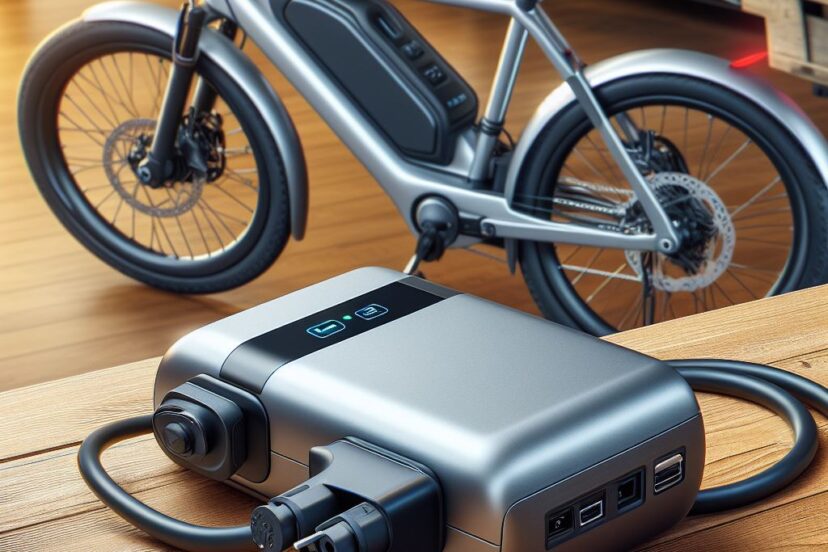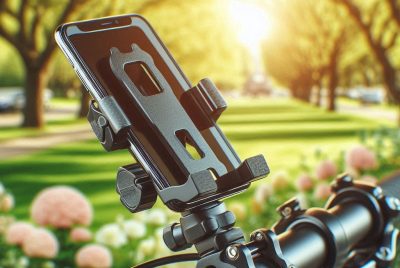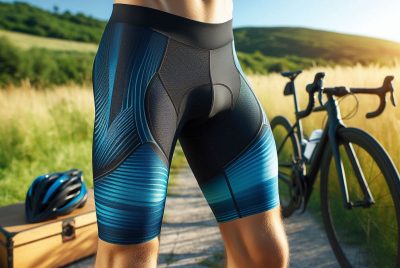Electric Bike Chargers: Enhancing Riding Experience
*We may earn a commission for purchases made using our links. Please see our disclosure to learn more.
Electric Bike Chargers: Top Models and Buying Tips
Electric bikes, also known as e-bikes, have become a popular mode of transportation due to their convenience and eco-friendliness. They provide an easy way to get around without the physical effort required by traditional bicycles. To keep these bikes running smoothly, a reliable electric bike charger is essential. Electric bike chargers come in different types and have varying features. The key things to look for when choosing a charger are compatibility with your bike’s battery, charging speed, and safety features. It’s important to pick a charger that matches the voltage and amperage requirements of your e-bike to avoid any damage to the battery or the bike itself.
We reviewed several electric bike chargers to find the ones that provide the best performance and reliability.
Top Electric Bike Chargers
I’ve compiled a list of the best electric bike chargers available today. These top picks ensure your bike is always ready to go.
YANZHI Charger for Jetson Electric Bike and Scooter
This YANZHI charger is a solid option for Jetson bikes and scooters if you don’t mind the few limitations.
Pros
- Reliable charging indicator
- Built-in safety features
- Compatible with multiple models
Cons
- Limited compatibility
- Sometimes stops working after few uses
- No 3-prong connector
Using the YANZHI charger was a straightforward experience. The LED indicator is very helpful, letting me know when the battery is fully charged. It’s simple and takes the guesswork out of the process.
I appreciate the safety features built into this charger. The short-circuit protection gives me some peace of mind, knowing it’ll handle unexpected issues without damaging my bike or scooter.
While it fits several Jetson models, it’s not compatible with all of them. It’s important to double-check if it works with your specific model. I noticed some reviews mentioning it stopped working after a few charges, which is something to keep in mind.
Overall, this charger performs its job well as long as you confirm compatibility.
VHBW Electric Bike Charger
A reliable and cost-effective replacement charger for Jetson electric bikes and some scooters.
Pros
- Charges faster than the original
- LED indicator for charging status
- UL-listed for safety
Cons
- Not compatible with 3-prong connectors
- Doesn’t work with lead-acid batteries
- Limited to certain voltage types
The VHBW Electric Bike Charger proved to be a solid choice for replacing my lost Jetson charger. I noticed that it charges the bike faster than the original, which is a nice bonus when you’re in a hurry. The LED indicator also makes it easy to see when the bike is fully charged.
One downside is that it’s not compatible with 3-prong connectors, so double-check your bike’s requirements before purchasing. Also, this charger is not suitable for lead-acid batteries, which might be a deal-breaker for some users.
Even with these limitations, I found it to be a dependable and safe option, thanks to its UL listing. The compact design makes it easy to store when not in use. It fits seamlessly into my daily routine, ensuring my bike is always ready to go.
Syvrac 48-54.6V Electric Bike Charger
This charger is a solid choice for anyone needing a reliable and efficient way to power up their 48V electric bike battery.
Pros
- Very efficient at charging quickly
- Simple to use with clear LED indicators
- Lightweight and easy to carry
Cons
- May need an adapter for some bikes
- Can be a bit noisy
- Materials feel less durable
The Syvrac 48-54.6V Electric Bike Charger impressed me with how fast it charges my bike’s battery. It usually brings my battery from empty to full in about a few hours. The LED indicators are a big help too, showing red when charging and green when it’s done.
One thing to note is that I had to use an adapter because my bike’s port didn’t match perfectly with the charger. It wasn’t a major issue, just a slight inconvenience. The noise level is moderate; not too loud but noticeable if you’re in a quiet room.
Despite its efficient performance, the charger feels somewhat lightweight and less sturdy. For the price and performance though, it’s a good pick for daily use. If you need a reliable charger for your 48V bike battery, this is worth considering.
FRISATPOW 42V 2A Charger
This charger is a solid option for quick and reliable charging of several electric scooter brands.
Pros
- Fast charging speed
- Compact and lightweight
- Multiple connector options
Cons
- Short cords
- Compatibility issues with some models
- Can be tricky to figure out initially
I recently had the chance to use the FRISATPOW 42V 2A Charger with my electric scooter. The charger is compact and light, making it really convenient to carry around. It’s great for those who need a replacement or backup charger. It quickly brings the battery up to full charge, which is a huge plus for anyone constantly on the move.
One thing I noticed is the cord length is on the shorter side. This can make it a bit frustrating if the power outlet isn’t close by. Not every scooter or bike will charge correctly with this model, despite having multiple connector heads. My daughter’s older scooter just wouldn’t charge with it, even though it seemed compatible.
In terms of build quality, the FRISATPOW charger feels reliable. The indicator light is quite handy to know when the charging is done. At first, setting it up can be a bit of a challenge due to the different connectors, but once you get past that, it’s straightforward to use. It’s a worthwhile buy for anyone needing a swift and reliable charger.
Cycle Satiator Charger
If you want a versatile and durable charger for your electric bike, the Cycle Satiator Charger is a solid choice.
Pros
- Fast charging up to 8 amps
- Works with many battery types and voltages
- Rugged and waterproof
Cons
- Needs extra adapters for some connections
- More costly compared to basic chargers
- Slight learning curve for programmability
I’ve had a great experience using the Cycle Satiator Charger. It’s incredibly fast, reaching up to 8 amps, which gets my bike ready to go in no time. The ability to charge multiple types of batteries is also a big plus. I don’t have to worry about compatibility; this charger handles everything from 24V to 52V batteries with ease.
One thing to note is that you might need to buy extra adapters depending on your setup. It comes standard with a 3 Pin XLR, but other adapters are sold separately. This might feel like an extra hassle or cost, though, so keep that in mind.
It’s definitely a bit pricier than some basic chargers, but the durability justifies it. This charger is built to last, being both rugged and waterproof. I feel confident using it in various conditions without worrying about damage. The programmability of the voltage and amperage is a handy feature, although it took a little time to figure out. Once I got the hang of it, though, it was smooth sailing.
For those looking for a reliable, fast, and versatile charger for their electric bike, I highly recommend giving the Cycle Satiator a try.
Buying Guide
When choosing an electric bike charger, several factors are essential. I often look at compatibility, charging speed, durability, safety features, and portability.
Compatibility
First, make sure the charger matches your bike’s battery type and voltage. Not all chargers work with all batteries. Check the specs of your battery before shopping.
Charging Speed
Next, consider how quickly the charger can power up your bike. Some chargers offer faster charging times, which can be convenient if you’re often in a hurry.
Durability
Durability matters too. Look for a charger that is built to last. It should be made from strong materials to withstand daily use.
Safety Features
Safety is critical. Look for features such as overcharge protection and short circuit protection. These can prevent damage to your bike and enhance your safety.
Portability
A portable charger is useful if you’re always on the go. Lightweight and compact chargers are easier to carry around.
| Feature | Importance | Why it Matters |
| Compatibility | Essential | Ensures charger works with your bike |
| Charging Speed | High | Reduces waiting time |
| Durability | Important | Long-lasting use |
| Safety Features | Very Important | Prevents damage and enhances safety |
| Portability | Useful | Easy to carry around for convenience |
By focusing on these features, you can find a suitable electric bike charger that fits your needs perfectly.
Frequently Asked Questions
When it comes to charging electric bikes, it’s important to know how to pick the right charger, find the best options, and understand compatibility with other charging sources.
1. How do I determine the correct voltage charger for my electric bike?
First, check your bike’s manual or manufacturer’s website. They usually provide the specific voltage required. Matching the charger’s voltage with the battery’s voltage is crucial to avoid any damage.
2. What are the best electric bike chargers on the market?
Some top-rated chargers include brands like Bosch, Shimano, and Grin Technologies. These brands are known for reliability and efficiency. Review customer feedback for performance insights.
3. Can I find electric bike chargers at popular retail stores?
Yes, many big retailers like Walmart, Best Buy, and Amazon sell electric bike chargers. You can also find them in bike shops and specialty electronics stores.
4. Can electric bikes be charged using a universal charger?
It’s not advisable to use a universal charger unless it’s specifically designed for electric bikes. Always follow the manufacturer’s recommendations. Using the wrong charger can be unsafe and may void your warranty.
5. Is it possible to charge an electric bike from a car’s 12V outlet?
Yes, but you will need an inverter to convert the 12V DC from the car battery to the required voltage and current for your bike. Ensure the inverter matches the bike’s specifications to prevent any issues.









